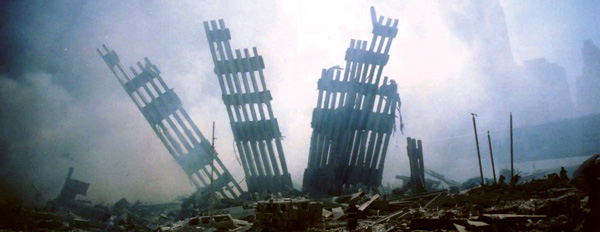The Legacy of Sept. 11: Still Searching for Focus

Photo by AP Photo/Alexander Fuchs
After 10 years, it’s harder than ever to remember what the world was like before Sept. 11, 2001. That world disappeared at 8:46 a.m. Eastern time, the moment on that sparkling morning when the first hijacked airliner crashed into the North Tower of the World Trade Center. The post-Sept. 11 world is a vastly different place. Due to intensified intelligence efforts and stricter security measures, the United States has dodged major terrorist incidents since 2001, although not for lack of trying by groups linked to al-Qaida, which sponsored the Sept. 11 attacks, or by rogue efforts of individuals. But terrorism has continued to take its toll in places like London, Madrid, Mumbai, Pakistan and Norway.
Osama bin Laden is dead. But the fight against terrorism is far from over.
Read all the articles in our special report:
“We’re in a new era of the long war,” says Harvey Rishikof of Washington, D.C., who chairs the ABA Standing Committee on Law and National Security.
Much of the uncertainty about how the United States should fight terrorism has involved complex and, in Rishikof’s view, often unprecedented, legal issues.
The executive branch, Congress and the courts continue to struggle with the legal implications of policies aimed at terrorists. “The events of 9/11 created challenges for our understanding of separation of powers and how to project force overseas,” Rishikof says. The difference between domestic criminal law and the international law of armed conflict has become harder to define. And the threat of cyberterrorism raises issues hardly contemplated a decade ago.
The following articles address the past and future of the conflict.
There are no easy answers to the policy and legal questions relating to terrorism, says Rishikof. “After 10 years, we’ve still not resolved the issues to the satisfaction of the domestic or international communities,” he says.
Write a letter to the editor, share a story tip or update, or report an error.


